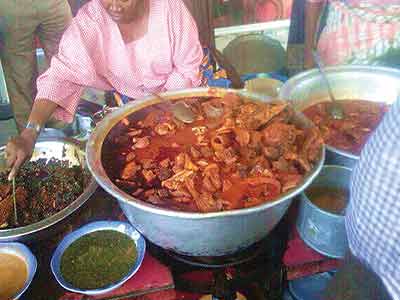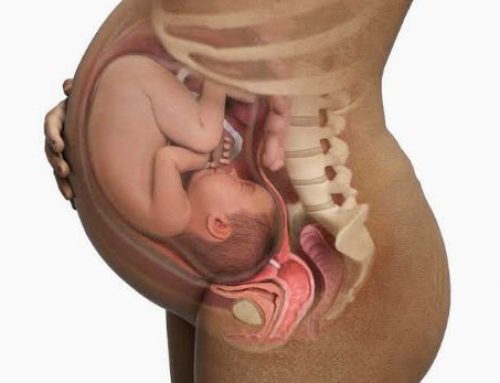The craze for food has made food vendors, especially roadside sellers, scattered around in the business. Everywhere you go, from Lagos to Ibadan, Calabar, Kano, Abuja and all over the country, roadside food vendors exist. They are called Mama put in local parlance. They sell all kinds of food, ranging from rice, beans, yam, bread, plantain, eggs, fish, meat, salad and ‘swallows’ like garri, semovita, amala, fufu and others.
Mode of operation
People at all levels gather at various mama puts. These food sellers operate throughout the day closing around 8pm. Some close earlier than that if their food finishes earlier and proceed home to rest and prepare for the next day.
While some work for five days, some run their businesses from Monday to Saturday, using Sundays for worship if they are Christians. Others, who are none Christians, do run their trade seven days a week, not minding public holidays.
Why Mama Put ?
Various reasons abound why people patronise roadside food vendors. For Iyabo Murtala, who sells beans and bread in Mushin, Lagos, poverty can be a major reason.
“Is it possible to get a standard meal with just N200 at home, especially if you don’t have gas cooker or kerosene stove? But you can get a quality food for that amount in a canteen. This is a major reason people eat out,” she said.
Ogochukwu Isaac, also a food vendor, told The Nation that people eat outside for various reasons. “People sometimes eat outside because they are in a hurry. It may be they need to attend urgently to something; they will just rush and eat before going on their assignment.”
A customer, who simply gave his name as Johnson, said: ”Eating roadside food is cheap for me. I can spend only N200 to get rice, plantain and fish and I will be satisfied. I don’t have much money. I only live within my means.”
“Market is poor”
In spite of army of those patronising food vendors every day, operators still complain that sales have gone down and they are not making much profit.
A vendor, Abake Oyebode, lamented that the sky-rocketing increase in the price of rice has spoilt business for food vendors.
She told The Nation that she sells “rice, eba and others such as “okele” also known as swallow. “Market is dull, rice is expensive. In fact, it is the most expensive in the market right now, as others are a little cheaper. It is 400 naira for a De-Rica of rice now,”she said, adding: “People don’t buy much food again, because they don’t have the money. I tell those, who complain that my food is small to buy more if they are not satisfied. The rice I used to sell for N70 is what I now sell for N100. It is becoming unbearable for us.
A lady, Miss Isaac, commenting on sales, said: “People only buy N300 or N100 food. They hardly buy food for N500. They eat as they can buy, whether they are satisfied or not. The country is hard for everyone now.”
Murtala added: “I cannot buy rice in the market because it is very expensive, so I do not sell it. I am contented with this bread and beans that I sell.”
Health hazards
According to a 2007 study from the Food and Agriculture Organisation, 2.5 billion people globally eat street food daily. Roadside food saves people from the pangs of hunger, but there are questions on the hygienic conditions of the environment where the food is sold.
Many food vendors do their business anyhow. They do not cover their food items, just as they sell beside dirty gutters and refuse dumps. It is common to see flies perching on roadside food items and passing vehicles increase its hazards by adding dust and smoke from exhaust fumes.
These traders, according to observers, are uneducated and not knowledgable on how to keep their environment clean and the dangers of food-borne diseases.
”There is a woman in front of my workplace who sells roasted plantain and surprisingly her food is very popular, especially for those eating it with groundnut. People around patronise her daily, including those from my workplace.
“But I cannot see myself eating one of those things. Whenever I think of it what first comes to my mind is the fact that the woman’s or anyone else’s hands, in whatever condition they are (unwashed, dusty, dirty) help to turn what I will put in my mouth,” said a man on the street.
A doctor, Dr Idi Martins, warned against eating roadside foods such as plantain and bean cake. In an interview with the News Agency of Nigeria (NAN), Martins described them as unhygienic, as they pose serious threat to health of consumers.
“These foods are usually sold by the roadside, and are exposed to a lot of pollution, dust and smokes emanating from vehicular and pedestrian movement.
“Even though some of the hawkers use polythene bag to cover the food, it still poses a threat to consumers, which causes food poisoning, infections and other serious diseases.
“Some of these hawkers or vendors often wear dirty aprons, have their hair uncovered, with some of them using unclean hands and utensils to serve customers without washing them,’’ he said.
However, die-hard patrons of mama put claim they are conscious of what they buy and whom they buy from, holding the belief that they are safe.
Credit: The Nation







Leave A Comment